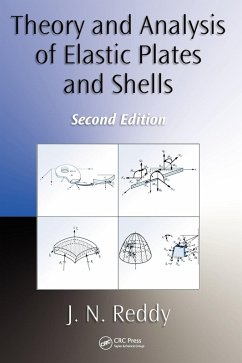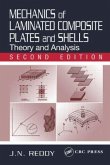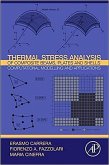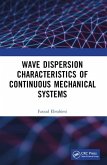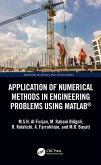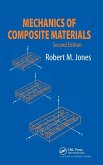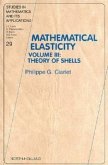Because plates and shells are common structural elements in aerospace, automotive, and civil engineering structures, engineers must understand the behavior of such structures through the study of theory and analysis. Compiling this information into a single volume, Theory and Analysis of Elastic Plates and Shells, Second Edition presents a complete, up-to-date, and unified treatment of classical and shear deformation plates and shells, from the basic derivation of theories to analytical and numerical solutions.
Revised and updated, this second edition incorporates new information in most chapters, along with some rearrangement of topics to improve the clarity of the overall presentation. The book presents new material on the theory and analysis of shells, featuring an additional chapter devoted to the topic. The author also includes new sections that address Castigliano's theorems, axisymmetric buckling of circular plates, the relationships between the solutions of classical and shear deformation theories, and the nonlinear finite element analysis of plates. The book provides many illustrations of theories, formulations, and solution methods, resulting in an easy-to-understand presentation of the topics.
Like the previous edition, this book remains a suitable textbook for a course on plates and shells in aerospace, civil, and mechanical engineering curricula and continues to serve as a reference for industrial and academic structural engineers and scientists.
Revised and updated, this second edition incorporates new information in most chapters, along with some rearrangement of topics to improve the clarity of the overall presentation. The book presents new material on the theory and analysis of shells, featuring an additional chapter devoted to the topic. The author also includes new sections that address Castigliano's theorems, axisymmetric buckling of circular plates, the relationships between the solutions of classical and shear deformation theories, and the nonlinear finite element analysis of plates. The book provides many illustrations of theories, formulations, and solution methods, resulting in an easy-to-understand presentation of the topics.
Like the previous edition, this book remains a suitable textbook for a course on plates and shells in aerospace, civil, and mechanical engineering curricula and continues to serve as a reference for industrial and academic structural engineers and scientists.
Praise for the previous edition
"This new book by J.N. Reddy digests more than two decades of research by him in plate theories (specially for thick plates and laminated composites), variational methods, and finite elements into an excellent textbook, which can be used very well by beginning or advanced graduate students, or by many engineers who deal with aerospace, automotive, and civil engineering structures. That is, the material is presented carefully and reasonably thoroughly in language that is easy to follow. This is the best textbook that this reviewer has seen for understanding the most important aspects of plate theory, and containing modern, important aspects of plate theory, which Timoshenko hardly could touch upon at all (in some cases they were not yet recognized topics), especially thick plates, laminated composites, and finite elements. And yet Reddy's book accomplishes good, useful introductions to all these topics in a mere 540 pages. Theory and Analysis of Elastic Plates is a textbook that clarifies the important aspects of plate theory, emphasizing its most important modern ones. For this purpose it is the best book available, in this reviewer's experience. As such it belongs on the bookshelves of every technical library, and every graduate student or engineer seriously interested in plates, and should become a widely used textbook in graduate-level courses."
-Arthur W. Leissa, Ohio State University, Applied Mechanics Reviews
"This new book by J.N. Reddy digests more than two decades of research by him in plate theories (specially for thick plates and laminated composites), variational methods, and finite elements into an excellent textbook, which can be used very well by beginning or advanced graduate students, or by many engineers who deal with aerospace, automotive, and civil engineering structures. That is, the material is presented carefully and reasonably thoroughly in language that is easy to follow. This is the best textbook that this reviewer has seen for understanding the most important aspects of plate theory, and containing modern, important aspects of plate theory, which Timoshenko hardly could touch upon at all (in some cases they were not yet recognized topics), especially thick plates, laminated composites, and finite elements. And yet Reddy's book accomplishes good, useful introductions to all these topics in a mere 540 pages. Theory and Analysis of Elastic Plates is a textbook that clarifies the important aspects of plate theory, emphasizing its most important modern ones. For this purpose it is the best book available, in this reviewer's experience. As such it belongs on the bookshelves of every technical library, and every graduate student or engineer seriously interested in plates, and should become a widely used textbook in graduate-level courses."
-Arthur W. Leissa, Ohio State University, Applied Mechanics Reviews

